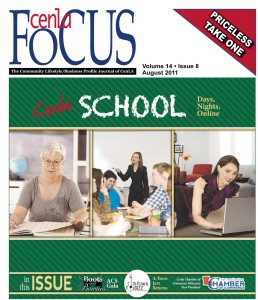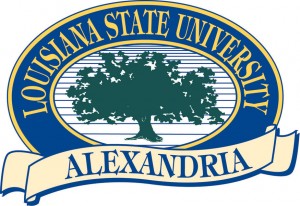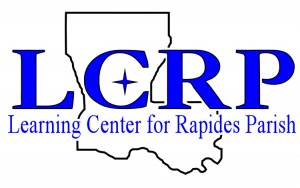
–
–
–
–
LSU-A
By Chancellor David P. Manuel

The key feature of this challenge is to improve access to higher education. Many associate access with vehicles of educational delivery. For example, online education can be an important delivery tool, but online delivery is not mutually exclusive from traditional classroom instruction and learning. Indeed, blended online and traditional faculty-led classroom instruction is far preferable for many students. Regardless if the student is a traditional first time freshman just out of high school or a returning re-entry student who has interrupted his/her academic career, access is first measured by degree availability. The baccalaureate status of LSUA, achieved in 2001, improved access to bachelor degrees in Central Louisiana; however, the reluctance to approve new undergraduate degree programs at the State level has hampered the pace of the access, particularly for non-traditional students who are place-bound. Evidence of this lack of access is powerful. For instance, the number of bachelor degrees available per 10,000 persons averages 1.8 in the eight Louisiana labor markets. The density of such degrees is lowest in the Alexandria labor market with only .5 bachelor degrees available per 10,000 persons. Thus, Alexandria once again has the dubious distinction of having the lowest density of degree availability in Louisiana. One would think that the answer is to have more online degrees available to these persons. While more online degrees are now available, it is not clear that the choice has been to pursue these. Had online education been the significant choice of students in Central Louisiana, educational attainment levels would have improved dramatically more than the evidence demonstrates.
Who are these Central Louisiana students? What are the characteristics of these students that make their college-going culture so different? First, Central Louisiana continues to be a place-bound population that does not have as much mobility or the family financial resources that would enable them to attend a university as a full-time degree seeking student. A large percentage of the LSUA student body is characterized as “first generation” college students and over 40 percent receives Federal Pell Grant assistance to cover the cost of tuition and related fees. Thus, affordability of a regional university degree is imperative for many of these students if they are to reach their career goals.
Second, degree seeking status is impacted by both financial and locational factors. The region’s relatively modest per capita income requires that a large portion of students work part-time or full-time in order to have the resources to pay for their education. This is particularly the case with LSUA students and is a feature of non-traditional students nationwide; more than 45 percent of LSUA students attend the university as part-time students. The dilemma for the student and his/her family is a complex one — part-time status requires more years dedicated to pursuing the degree, tuition increases over those years and income is foregone for delayed entry into the workforce as a full-time employee.
A third complicating feature is that a large number of LSUA non-traditional students have interrupted their academic careers for a variety of reasons. Restarting university experiences is challenging and requires unique academic advising different from that received by the traditional student. Many of these non-traditional students are women (73 percent of the LSUA population) and the average age is nearly 27 years. For example, in the spring 2011, 20 percent of the student body had experienced an interruption in their academic careers of at least five years. Historical research reveals that nearly 25 percent of all LSUA graduates have experienced the same interruption.
The academic and advising needs of the traditional student differ from those of the non-traditional student and while the goal of student success is the common thread, measuring the outcome with the same measure does not accurately reflect that success. For example, it is astonishing that more than 34 percent of all LSUA graduates have completed degrees in the first 8 years since the award of its first bachelor’s degree. Furthermore, in the May 2011 graduating class, 85 percent of the graduates did not fit into the commonly accepted graduation rate because they may have transferred from another university, may have been enrolled as a part-time student or may have reentered after some period of non-attendance.
These anomalies about the LSUA student body and the mix of its traditional and non-traditional populations do not diminish the challenge or the promise of educational attainment. The benefits are unmistakable. Annual median incomes of families who have earned a bachelor’s degree are nearly 90 percent higher than those who have earned only a high school degree and those who have earned an associate degree have annual earnings that are 35 percent higher than those holding a high school degree. Unemployment rates have a direct inverse correlation with educational attainment. Diversity of the regional industry mix is greater with higher educational attainment and economic development is more vibrant. These outcomes are palpable benefits of educational attainment; LSUA’s challenge is to ensure that the promise is attainable to a diverse traditional and non-traditional student population.
The Learning Center for Rapides Parish

Leigh Flynn, director of planning and communication for the Learning Center, says the facility “offers students the best of all academic worlds – partnerships among several institutions, course delivery using state-of-the-art technology, and instructional methods and classes that meet the working students’ schedules and needs.” Those methods include “face-to-face” instruction, video conferencing, online programs, and in many cases, a combination thereof. Program offerings range from individual classes through graduate degrees. Students can complete community college coursework, then transfer their general education credits to one of the four-year institutions. Students can even go beyond that to obtain graduate degrees in certain areas – all right here in central Louisiana.
Partner institutions offering courses and programs on-site this fall include Bossier Parish Community College, Central Louisiana Technical College’s Shelby Jackson Campus, Louisiana State University, LSUE-Cenla, Northwestern State University, Texas Wesleyan University, and Upper Iowa University.
The Learning Center features 10 “smart classrooms” with the latest technology at the instructors’ fingertips. The Learning Center also has several high-definition compressed video classrooms, which enable institutions to maximize their resources while meeting the needs of students throughout the state.
Not only is the Learning Center a valuable resource for those seeking college-level programs. The Learning Center has become an ideal location for conferencing and training in central Louisiana. “Because of the wonderful technology and quiet, convenient location, more and more people are discovering that this is an ideal setting for employee training,” said Flynn. The Learning Center can accommodate groups of 2 to 100 people. Discounts are available for various groups.
To find out more about the Learning Center, including a full schedule of classes, information on the facility and more, visit www.TheLCRP.net or call (318) 484-2184.
Northwestern State University
By Dr. Randy Webb
Throughout its more than 125-year history, Northwestern State University has shown its commitment to providing educational opportunities for the people of Louisiana and the world. Over the last decade, we expanded those efforts to become a global university that is also focused on the local area. Whether you want to earn a degree in a traditional class, an online class or a combination or both, Northwestern can help you develop a degree plan to suit your learning style.

NSU also has a program for adult learners who may have started college, but were not able to finish. The Center for Adult Learning in Louisiana (CALL) Program is a fast-track program that allows students to finish their degree quicker. CALL offers a Prior Learning Assessment that can provide college credit based on job experience. Students who have more than 60 hours credit without a bachelor’s degree may qualify for an associate degree through Project Win-Win.
It’s a Sunday afternoon and Carolyn Ellis is taking a class at Northwestern State University. Ellis, a senior general studies major from Alexandria, is one of the more than 5,800 Northwestern students (62.8 percent) who took at least one class online last year. An employee of the Louisiana Special Education Center, Ellis was taking classes in person. Her sons Terrell and Kelvin Winslow told her about Northwestern’s online degree programs and encouraged her to try it.
“Having the ability to take online classes made things much easier for me because of work and family demands,” said Ellis. “I can take classes without having to take off from work. Now I don’t have to do as much running around. I do my work in the evenings, on Saturday and after church on Sunday. The classes are convenient for me.” She said Northwestern’s faculty have always been available to answer her questions, regardless of when she may need help. ”I e-mail the faculty and get a prompt response every time and that is very helpful,” said Ellis.
Ellis takes six to nine hours per semester through the Center for Adult Learning in Louisiana (CALL) Program and hopes to earn her degree in 2013. Northwestern offers more online classes than any other Louisiana college and university and is one of the leaders in distance education in the South.
“Higher education is changing rapidly and one of the major changes is in how classes are delivered,” says Dr. Darlene Williams, Northwestern’s vice president for technology, research and economic development. “Many students don’t want to be limited by a rigid class schedule. They want to be able to do their work any time and any place. NSU provides them with that option.”
Northwestern has been the leader for higher education in central Louisiana for more than 125 years, branching out from its main campus in Natchitoches to satellite campuses in Shreveport, Alexandria, Leesville-Fort Polk and its Global Campus through eNSU. Northwestern has 26 complete degree programs online including associate, bachelor’s master’s and specialist degrees and certifications. Students can also take a combination of face-to-face and online classes.
The cost of getting an online degree from Northwestern is economical, according to a recent national survey. NSU’s online degree programs in psychology, addiction studies and criminal justice have been rated as “Best Buys” by the website http://www.GetEducated.com.
NSU also offers classes by compressed video which allows students to take classes near their home from an instructor at a distance site. For example, Northwestern offers nursing classes taught by instructors in Shreveport to sites in Alexandria and Leesville-Fort Polk.
For more information on online degree programs at Northwestern, go to http://eNSU.nsula.edu.









